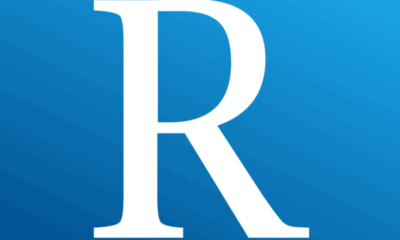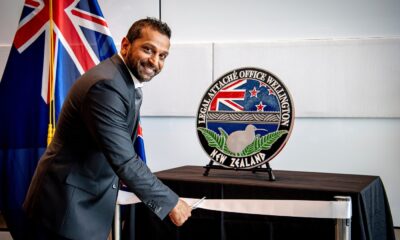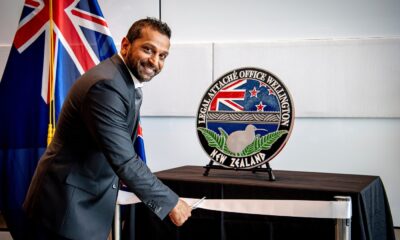Science
Kawaiicon Launches Innovative CO2 Monitoring for Healthier Events
New Zealand’s premier hacker conference, Kawaiicon, has taken a proactive approach to attendee health by implementing a real-time carbon dioxide monitoring system. Launched on November 6, 2023, the initiative aims to combat “con crud,” a term used to describe illnesses that often spread at large gatherings. Attendees could access a public online dashboard that provided live air quality readings for various areas within the Michael Fowler Centre.
The Kawaiicon organizers installed a series of DIY CO2 monitors throughout the venue before the conference commenced. This project allows participants to check air quality levels in session rooms, kids’ areas, and common spaces, ensuring they are informed about the environment before arriving. The organizers remarked on their website, “It’s ALMOST like we are all nerds in a risk-based industry.”
Jeff Moss, founder of the renowned Defcon and Black Hat security conferences, praised the initiative, stating, “What they did is fantastic… Kawaiicon building something to do this is the true spirit of hacking.” Elevated CO2 levels can diminish cognitive function and increase the likelihood of airborne virus transmission, making such monitoring increasingly relevant, especially during ongoing health concerns.
Addressing Health Risks at Conferences
Kawaiicon organizers faced the challenge of conducting a large information security event amidst a measles outbreak and the persistent threat of COVID-19, influenza, and RSV. They highlighted that the Michael Fowler Centre operates with a single HVAC system using Farr 30/30 filters rated at MERV-8, a standard typically used in home settings. The venue’s age and limitations in technology posed difficulties in controlling air quality effectively.
Initiatives to improve air monitoring began a month before the conference. Organizers deployed a fleet of 13 RGB Matrix Portal Room CO2 Monitors, a project adapted from Adafruit Industries, a US-based electronics company. These monitors connected to an internet-accessible dashboard, offering live data, daily highs and lows, and historical trends of CO2 levels in real time. The deployment of these monitors was supported by researchers from the University of Otago, enhancing the credibility and accuracy of the data collected.
Limor “Ladyada” Fried, founder of Adafruit, commended Kawaiicon’s adaptation of the Matrix Portal project, emphasizing the importance of understanding air quality measurements during public gatherings, particularly during health crises.
Empowering Attendees with Information
The air quality monitoring system allowed attendees to assess conditions at the conference, enabling informed decisions regarding their health and safety. Observations from the event indicated that participants frequently checked CO2 levels on their devices, adjusting their masks based on the readings displayed on monitors throughout the venue. Small wall-mounted monitors provided immediate visual cues: green indicated safe levels, orange signified caution, and red represented elevated CO2 levels.
Organizers emphasized their commitment to accommodating varying risk models for attendees, stating, “Everyone who occupies the con space we operate has a different risk and threat model.” They aimed to ensure all participants had the necessary information to make informed choices about their attendance.
Custom posters created by New Zealand artist Pepper Raccoon displayed QR codes throughout the venue, facilitating easy access to the CO2 dashboard. This feature was designed to prevent individuals from needing to approach monitors directly, thereby minimizing potential exposure.
While masks were encouraged, they were not mandatory, with free masks available at the event. Kawaiicon also provided a full virtual conference stream, ensuring accessibility for all interested participants, regardless of their physical presence at the venue.
Kawaiicon’s initiative addresses a pressing issue in the conference landscape, as many researchers and attendees are concerned about health risks associated with large gatherings. The organizers assert the importance of individual risk assessment and respect for personal choices regarding health precautions. They stated, “Just leave others to make the call that is best for them. No one needs your snarky commentary.”
This innovative approach not only enhances the safety of Kawaiicon attendees but also sets a precedent for future events, demonstrating how technology can be harnessed to improve public health in communal settings.
-

 Politics3 weeks ago
Politics3 weeks agoSecwepemc First Nation Seeks Aboriginal Title Over Kamloops Area
-

 World4 months ago
World4 months agoScientists Unearth Ancient Antarctic Ice to Unlock Climate Secrets
-

 Entertainment5 months ago
Entertainment5 months agoTrump and McCormick to Announce $70 Billion Energy Investments
-

 Lifestyle4 months ago
Lifestyle4 months agoTransLink Launches Food Truck Program to Boost Revenue in Vancouver
-

 Science5 months ago
Science5 months agoFour Astronauts Return to Earth After International Space Station Mission
-

 Technology3 months ago
Technology3 months agoApple Notes Enhances Functionality with Markdown Support in macOS 26
-

 Top Stories2 months ago
Top Stories2 months agoUrgent Update: Fatal Crash on Highway 99 Claims Life of Pitt Meadows Man
-

 Lifestyle3 months ago
Lifestyle3 months agoManitoba’s Burger Champion Shines Again Amid Dining Innovations
-

 Politics4 months ago
Politics4 months agoUkrainian Tennis Star Elina Svitolina Faces Death Threats Online
-

 Sports5 months ago
Sports5 months agoSearch Underway for Missing Hunter Amid Hokkaido Bear Emergency
-

 Politics4 months ago
Politics4 months agoCarney Engages First Nations Leaders at Development Law Summit
-

 Technology5 months ago
Technology5 months agoFrosthaven Launches Early Access on July 31, 2025



















